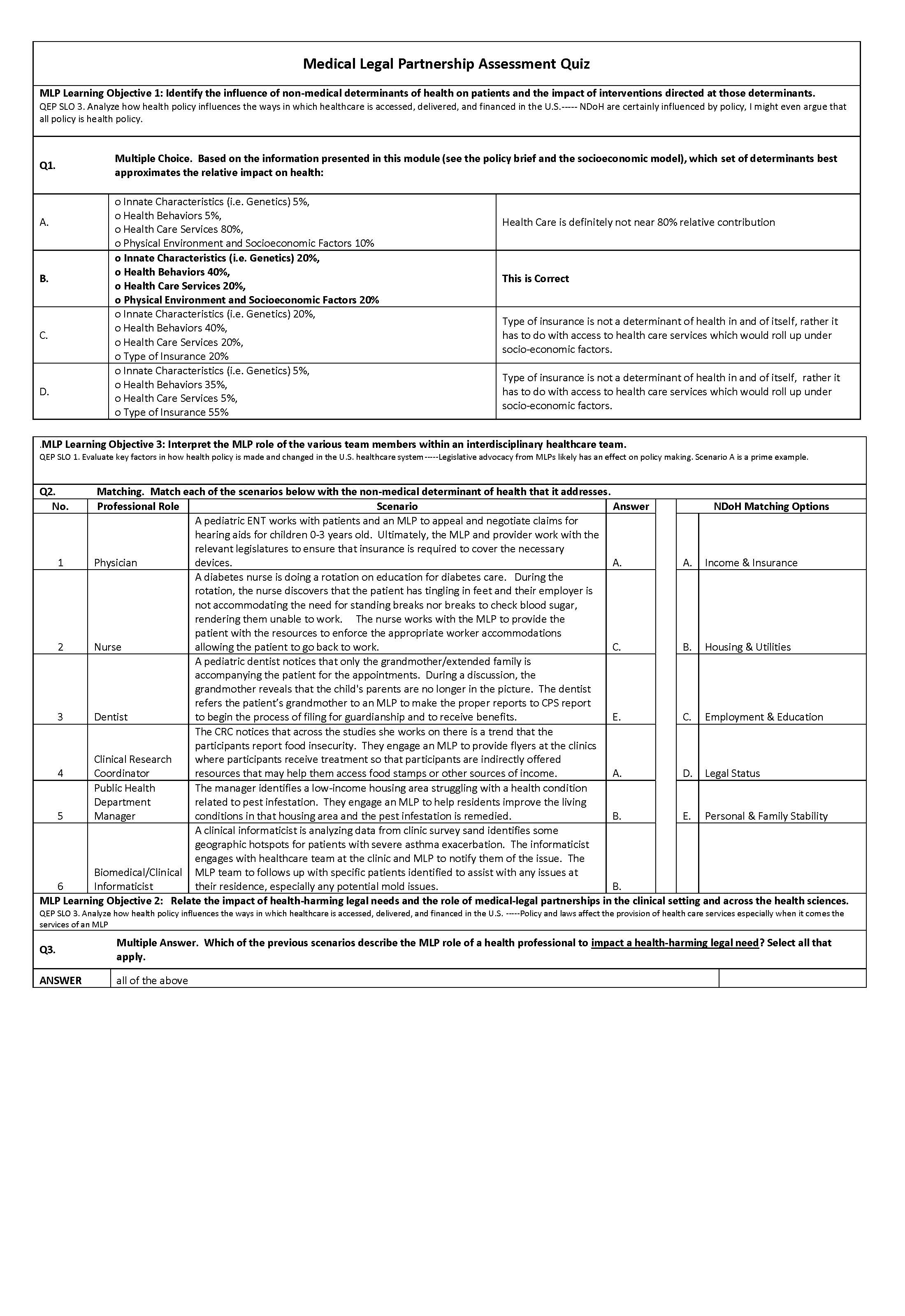Medical Education
Session: Medical Education 4
390 - A Pilot Study Educating Future Health Care Providers to Address Non-Medical Drivers of Health through Medical-Legal Partnerships
Saturday, May 4, 2024
3:30 PM - 6:00 PM ET
Poster Number: 390
Publication Number: 390.1261
Publication Number: 390.1261
- CF
Christina Fok, MD, JD (she/her/hers)
Assistant Professor of Pediatrics
McGovern Medical School at the University of Texas Health Science Center at Houston
Houston, Texas, United States
Presenting Author(s)
Background: Medical-Legal Partnerships (MLPs) connect health and law professionals to address non-medical drivers of health (NMDOH). Health Harming Legal Needs (HHLN) are NMDOH that require legal intervention. Healthcare professional education often includes NMDOH to address health inequities and disparities; however, though NMDOH education has been studied, student learning assessments in healthcare professional education about MLP and HHLN roles remain sparse.
Objective: 1. Assess student competency on MLP roles in addressing NMDOH
2. Evaluate MLP-content module reception by medical students
Design/Methods: A competency-based approach and an inter-professional focus guided development of an Advocacy Curriculum that included MLP curricula. The curricula was developed across six health professional schools—biomedical informatics, biomedical sciences, dentistry, medicine, nursing, and public health. Outcomes, objectives, and assessments were developed using Bloom’s taxonomy and adult learning principles. The instructional mode was asynchronous and online. The pilot was conducted with graduate medical students in fall 2023.
Results: Assessments and evaluation of the MLP content were overall favorable. 214 medical students completed this module with 80% or higher achievement of the learning outcomes. Students earned a mean score of 2.44 (SD = 0.66) out of 3 points. Students evaluated 3 MLP-module attributes on a 1 = Strongly Disagree to 5 = Strongly Agree scale. Mean attribute ratings were 4.17 (SD = 0.88) for the module providing students with knowledge about MLP and NMDOH, skills in describing MLP in clinical settings and the health sciences (M = 4.01, SD = 0.93), and contributing to their understanding of healthcare team members’ roles in MLP (M = 4.08, SD = 0.88). Most students agreed or strongly agreed with all three attributes.
Conclusion(s): Healthcare professional education in the 21st century incorporates NMDOH and their impacts on individual and population health. As part of the healthcare system focus on NMDOH, MLPs have been assets to addressing NMDH. Our pilot study demonstrated our curricula was well-received and students exhibited knowledge-gain overall and by learning outcome. Long-term goals are to utilize pilot results to inform module revision across our professional schools. Future studies are needed to evaluate the impact of MLP education on health professional students and the practice of their respective professions. Future goals include enhancing the MLP curricula by partnering with law schools.

.jpg)
.jpg)
